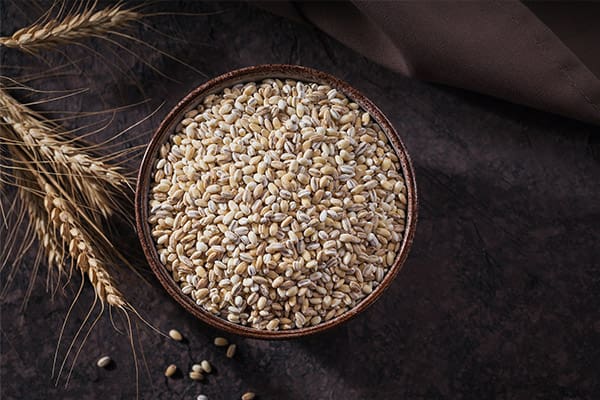
Beta-glucans are sugars that may offer an array of health benefits. They are being studied as a complementary cancer therapy. Researchers have also looked into other beta-glucan health benefits.
These natural sugars can support heart health and may help boost the immune system. Beta-glucans might also offer benefits for skin conditions, like eczema.
To promote awareness, we have created a list of beta-glucan benefits. This list can help people discuss different types of beta-glucans with their doctors. Doctors and dietitians can help patients understand the benefits and risks of adding beta-glucans to their diets.
1: Studies Suggest Beta-Glucans May Help Fight Cancer
Early research suggests that beta-glucans may have benefits for cancer patients. In general, studies have looked at using beta-glucans to complement other cancer treatments.
These results are encouraging, but further research is needed. Additional studies may shed more light on the benefits of beta-glucans for cancer patients.
2: Beta-Glucans Help Prevent Type 2 Diabetes and Heart Disease
Beta-glucans offer several benefits related to diabetes and heart disease. Research has linked cereal beta-glucans to positive effects on cholesterol, blood pressure and blood sugar.
According to experts, accepted health benefits of cereal beta-glucans include:
- Protection against cardiovascular disease: Cereal beta-glucans can help improve long-term blood cholesterol levels. High blood cholesterol is a known risk factor for heart disease.
- Protection against type 2 diabetes: Cereal beta-glucans can help regulate the body’s response to sugar after eating. This may reduce insulin resistance and the development of type 2 diabetes.
Preliminary data indicates yeast beta-glucans may offer similar health benefits. In one study, half of the participants took a yeast beta-glucan supplement for six weeks. They experienced:
- Blood pressure improvement
- Reduction in other markers of metabolic syndrome
Metabolic syndrome is a group of risk factors tied to cardiovascular issues like diabetes, heart disease and stroke. This study shows yeast beta-glucans may help fight these conditions.
Patients interested in beta-glucan benefits for diabetes and heart disease should speak with their doctors. Physicians can explain the benefits and risks of different types and sources of beta-glucans.
3: Beta-Glucans May Benefit the Immune System
Early research suggests beta-glucans may interact with the immune system in positive ways. Potential beta-glucan benefits for the immune system include:
- Boosting the immune response to colds and flus: A review of clinical trials found beta-glucans helped strengthen the immune system. Specifically, they boosted defense against cold, flu and other respiratory infections.
- Decreasing seasonal allergy symptoms: In one study, beta-glucans decreased sneezing and nose-blowing related to cedar allergies. In a similar study, beta-glucans decreased symptoms of ragweed allergies.
- Helping children’s immune response to respiratory issues: In one study, researchers found that beta-glucan supplements can help treat chronic respiratory problems in children.
- Reducing inflammation due to intense exercise: In multiple studies, beta-glucans decreased exercise-related inflammation. Chronic inflammation may increase the risk of heart attack or stroke. So this may be another way beta-glucans fight heart disease.
- Supporting the immune system during cancer treatment: Across multiple studies, beta-glucans decreased immune suppression caused by chemo and radiation. Beta-glucans also helped immune cell numbers bounce back after treatment.
Some studies reported conflicting results on some of these effects. More research is needed to better understand the immune benefits of beta-glucans.
4: Beta-Glucans May Help With Skin Conditions Like Eczema
Research into beta-glucan skin benefits is still in the early stages. Laboratory studies suggest beta-glucans can improve wound healing and eczema symptoms. A small number of trials have shown the same benefits in people.
More research is necessary to confirm these beta-glucan effects.
What Are the Best Sources of Beta-Glucans?
Beta-glucans can be found in many types of food easily accessible at your local grocery store. Barley, rye, bran and oat milks are commonly available beta-glucan sources. Foods with beta-glucans can provide enough of the nutrient to confer some of the health benefits mentioned above.
Sources of beta-glucans include:
- Baker’s yeast
- Barley
- Bran
- Durum wheat
- Mushrooms, including shiitake, king oyster and reishi
- Oats
- Rye
- Seaweed
- Sorghum
Beta-glucans may also be available in supplement form. Supplements may be a good option for cancer patients and others, but it is advisable to talk to a doctor before taking any. The U.S. Food and Drug Administration (FDA) does not regulate supplements as vigorously as it does drugs.
Beta-Glucans for Mesothelioma and Asbestos Lung Cancer Patients
Studies indicate that beta-glucans may have uses as complementary therapies. Further research is needed, but early results have been promising. In the future, beta-glucans may be a part of mesothelioma and asbestos lung cancer treatment regimens.
Mesothelioma patients can also speak to their doctors about incorporating beta-glucan foods into their diet. Maintaining good overall nutrition is an important part of any patient’s cancer journey.




